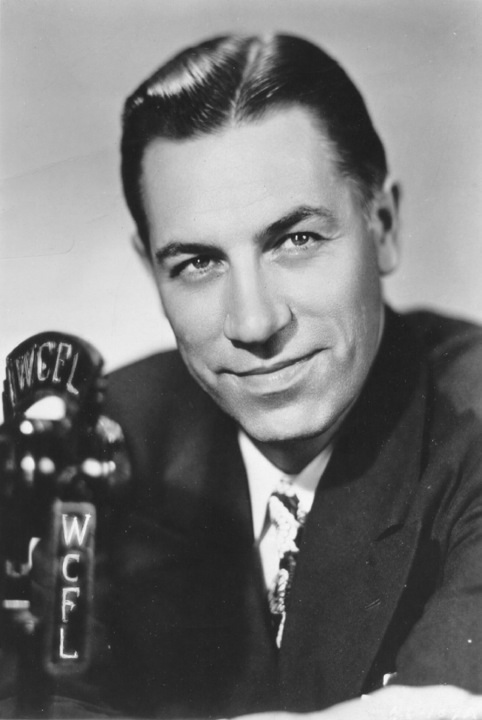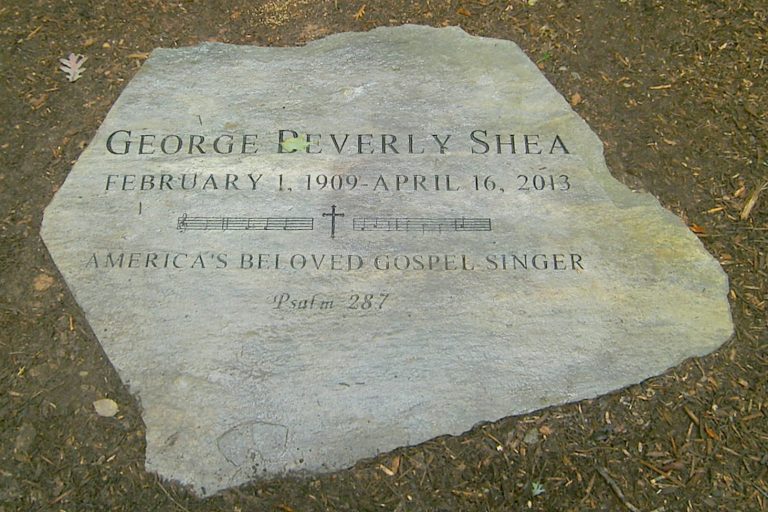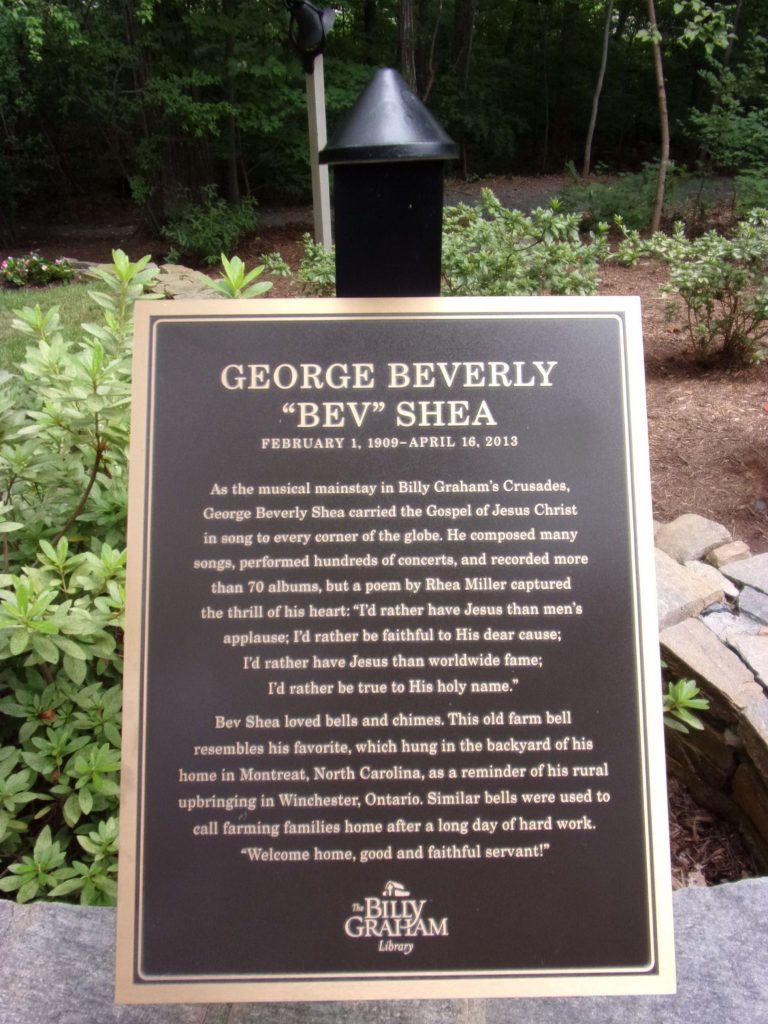Hymn History: I’d Rather Have Jesus
Author: George Beverly Shea
“He was a gentle spiritual giant, whose sweet spirit and tender timber of a voice prepared audiences for Graham’s message around the world for more than six decades.”
(A. Larry Ross)
The Origin of the Hymn “I’d Rather Have Jesus”
Few hymns express Christian devotion as simply and beautifully as “I’d Rather Have Jesus.” For nearly a century, this song has stirred hearts with its tender affirmation of faith and its quiet rejection of worldly pursuits. The hymn’s words came from the pen of a poet who once lived in the shadow of sorrow, while its music was born through the touch of one of the twentieth century’s most beloved gospel singers. Together, they created a hymn that continues to inspire believers to choose Christ above all else.
The Poet: Rhea F. Miller
The words of “I’d Rather Have Jesus” were written by Rhea F. Miller (1894–1966), a woman of deep personal faith who grew up in a Christian home in western New York. She was the daughter of Dr. A. B. Miller, a Wesleyan Methodist minister known for his strong preaching and holy living. Her family was active in the holiness movement, which emphasized personal surrender and a life consecrated to God.
As a young woman, Rhea watched her father struggle to guide people toward a life fully devoted to Christ rather than to worldly ambition. The hymn grew out of this spiritual conviction. In her poem, Rhea put into words the heartfelt choice every Christian must make—to value Christ above all material possessions, pleasures, or fame:
I’d rather have Jesus than silver or gold,
I’d rather be His than have riches untold;
I’d rather have Jesus than houses or lands,
I’d rather be led by His nail-pierced hand.
These lines express a simple truth that has resonated through centuries of Christian thought: that all the treasures of the world are nothing compared to knowing Christ.
Rhea Miller’s poem was first published in the early 1920s. It might have remained just a devotional poem, read quietly by a few, if it hadn’t fallen into the hands of a young musician named George Beverly Shea—a man whose life was about to be forever changed by her words.
George Beverly Shea and the Music
George Beverly Shea (1909–2013) was born in Winchester, Ontario, Canada, the son of a Wesleyan Methodist minister—much like Rhea Miller. His mother was a church organist and instilled in him a love for sacred music. By the time he reached his early twenties, Shea had a rich baritone voice and a promising future in radio and popular music. He was on the verge of pursuing a career in secular entertainment when the hymn’s words intervened.
One Sunday morning around 1932, Shea’s mother left a piece of paper on the family piano before church. On it were the words to Rhea Miller’s poem, “I’d Rather Have Jesus.” When George sat down to play, he began to read the poem. Deeply moved by its message, he began to compose a melody that seemed to flow naturally from the words. Later that day, he sang it for his mother.
That moment marked a turning point in his life. Shea later said that the words expressed exactly what he was feeling—the desire to live for Christ rather than to chase worldly success. He made his choice, turning away from a secular career and devoting his voice to gospel music.
The Song’s Rise to Prominence
In 1947, George Beverly Shea joined Billy Graham’s evangelistic team, becoming the soloist for Graham’s crusades for more than six decades. During these massive meetings—attended by millions around the world—Shea’s deep, warm voice became one of the most recognized in gospel music.
“I’d Rather Have Jesus” became Shea’s signature song. He sang it countless times at crusades, on radio broadcasts, and on records. Its simple, heartfelt message complemented Graham’s straightforward preaching of the Gospel. For many listeners, Shea’s rendition of the hymn became a moment of personal reflection—an invitation to weigh their own priorities and to choose Christ.
The hymn’s quiet sincerity stood out in an era when many gospel songs leaned toward emotional exuberance. Its beauty lay in its simplicity: a single soul’s confession of faith. And because Shea composed the melody himself, the hymn carried the authenticity of a man who lived its message.
The Hymn’s Enduring Message
The appeal of “I’d Rather Have Jesus” lies in its timeless spiritual truth. It does not belong to one denomination or culture but speaks universally to anyone who has ever wrestled with the pull of worldly ambition. The second verse captures this spirit perfectly:
I’d rather have Jesus than men’s applause,
I’d rather be faithful to His dear cause;
I’d rather have Jesus than worldwide fame,
I’d rather be true to His holy name.
The song concludes with a vision of peace and purity found in following Christ:
He’s fairer than lilies of rarest bloom,
He’s sweeter than honey from out the comb;
He’s all that my hungering spirit needs—
I’d rather have Jesus and let Him lead.
These words remind believers that faith is not only about avoiding sin but about choosing the highest good—Christ Himself.
Legacy and Influence
Over the decades, “I’d Rather Have Jesus” has been recorded by countless artists across genres—from hymnal singers to country and gospel performers. Yet it remains most closely associated with George Beverly Shea, who lived to be 104 years old and sang the hymn well into his later years.
Rhea Miller’s simple poem, joined with Shea’s moving melody, continues to inspire Christians around the world. It has been sung in cathedrals and camp meetings, on radio broadcasts and in quiet family devotions.
At its heart, the hymn is a personal testimony of surrender. It calls each listener to a decision—to prefer Christ over comfort, applause, or gain. For generations, it has served as both a hymn of worship and a prayer of dedication, echoing the words of the Apostle Paul:
“But whatever were gains to me I now consider loss for the sake of Christ.” (Philippians 3:7)
Conclusion
From a young woman’s poem in upstate New York to a song sung before millions around the world, “I’d Rather Have Jesus” stands as a testament to the power of humble faith. It reminds every believer that true joy is found not in riches or renown, but in walking daily with the Savior.
Through Rhea Miller’s pen and George Beverly Shea’s voice, the message endures: there is nothing greater in life than to have Jesus—and to be His.
_____
Image Source/Credit (in order):
- Photos of George Beverly “Bev” Shea – Find a Grave… 1 Feb. 1909, www.findagrave.com/memorial/108644857/george_beverly-shea/photo#view-photo=78456191.
- Photos of George Beverly “Bev” Shea – Find a Grave… 1 Feb. 1909, www.findagrave.com/memorial/108644857/george_beverly-shea/photo#view-photo=314471271.
- Photos of George Beverly “Bev” Shea – Find a Grave… 1 Feb. 1909, www.findagrave.com/memorial/108644857/george_beverly-shea/photo#view-photo=234578309.
- Photos of George Beverly “Bev” Shea – Find a Grave… 1 Feb. 1909, www.findagrave.com/memorial/108644857/george_beverly-shea/photo#view-photo=234578326.
Related
Sorry, no records were found. Please adjust your search criteria and try again.
Sorry, unable to load the Maps API.



